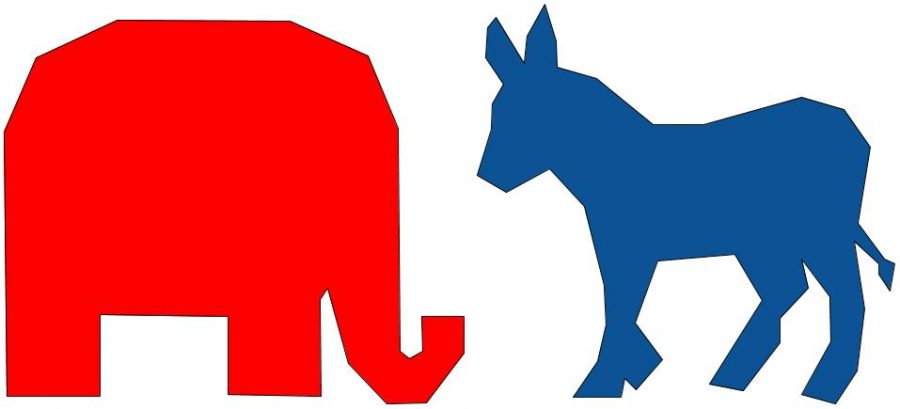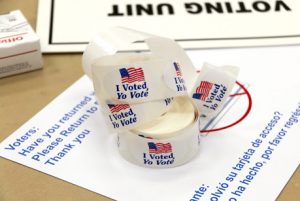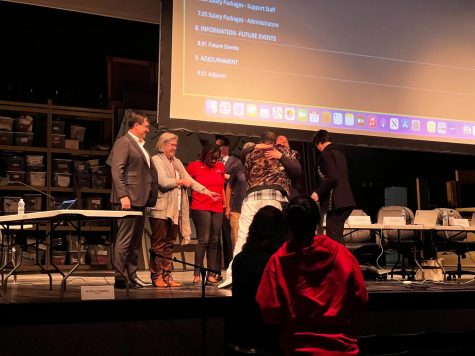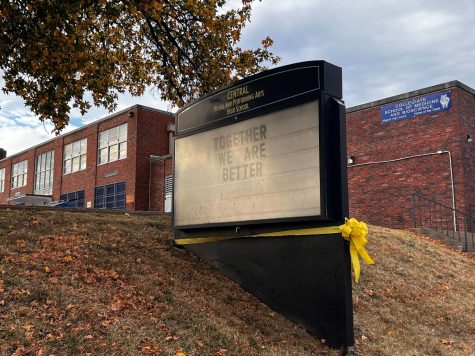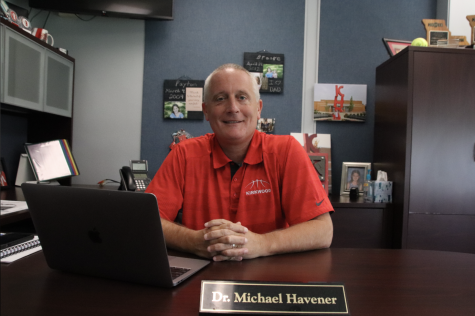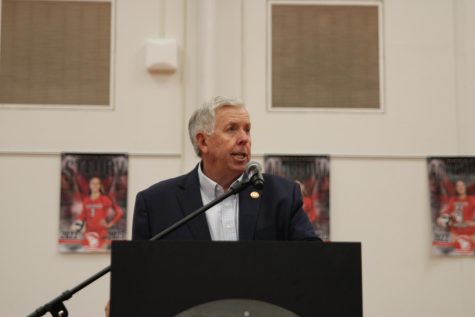2020 Missouri election summary
Courtesy of Google Creative Commons
Democrats and Republicans squared off on Election Day Tuesday Nov. 3
As usual, Tuesday after the first Monday in November was a day of celebration for most Missouri Republicans. This election, Democrats were optimistic that conservative incumbents’ handling of the COVID-19 pandemic and social justice issues would prompt a surge of new liberal officeholders. However, in Missouri, there was no such change, as Republicans were victorious once again on a statewide level.
This Republican dominance began at the top of the ballot. As it has every four years since 2000, Missouri voted for the Republican presidential candidate. President Donald Trump won all but four counties in Missouri: Boone County, Jackson County and St. Louis City and County. He garnered 56.8% of the vote and took all of the state’s 10 electors.
In the Missouri gubernatorial race, Republican Mike Parson defeated Democrat State Auditor Nicole Galloway 57.2% to 40.6%. Since Claire McCaskill left office in 2019, Galloway has been Missouri’s only Democrat and only woman to hold elected statewide office, and she was hoping to become Missouri’s first female governor. Galloway looked to capitalize on Missouri’s response to the coronavirus under Parson, but ultimately it was the law and order message of the former sheriff Parson that resonated with voters. Along with Parson, four other statewide Republican incumbents fended off Democratic challengers and won another term. Attorney General Eric Schmitt, Lieutenant Governor Mike Kehoe, Secretary of State Jay Aschcroft and Treasurer Scott Fitzpatrick were each reelected with around 60% of the vote.
Democrats found some success, however, in their candidate for United States Congress from Missouri’s first district. As expected, Cori Bush clobbered Anthony Rogers by nearly 200,000 votes, becoming the first Black congresswoman to represent Missouri in Washington. However, in the state’s only competitive congressional district, Missouri’s second, the Democrats were handed another loss. Republican Ann Wagner won her fifth term in Congress, defeating Jill Schupp in a race that was the focus of nearly $20 million in campaign spending.
In the state legislature, Republicans also triumphed, maintaining their decisive majority in the Missouri Senate. Andrew Koening, the state Senator in the Kirkwood area, contributed to that accomplishment, defeating Kirkwood’s current state representative Deb Lavender by nearly 10 points. Still, a Democrat will fill Lavender’s current seat in the Missouri legislature, as Barbara Phifer comfortably beat Republican Anne Landers to represent the 90th district.
Democrats also retained the office of county executive in St. Louis County. Incumbent Sam Page won by over 20 points against his challenger, Paul Berry III, in spite of criticism by Berry and the “Let Them Play” campaign surrounding Page’s control of St. Louis County’s COVID-19 response.
In addition to all these races, voters were also faced with two possible amendments to Missouri’s constitution. Amendment 1, which would have put term limits on the offices of Attorney General, Lieutenant Governor, Secretary of State and State Auditor, was rejected by 52% of voters. Meanwhile, Amendment 3 passed by an even slimmer margin, with 51% of voters approving the measure that would impose slightly stricter limits on campaign contributions and change Missouri’s redistricting process. With Amendment 3, the voters reversed a 2018 decision in which they approved an amendment that would’ve put a non-partisan state demographer in charge of drawing congressional districts. This year’s amendment transfers this power from a non-partisan state demographer to a governor-appointed bipartisan commission. Critics claim the approval of the amendment will lead to more gerrymandering.
Your donation will support the student journalists of Kirkwood High School. Your contribution will allow us to purchase equipment and cover our annual website hosting costs.

he/him
Favorite musical artist: The Beatles
Favorite quote:"If men were angels no government would be necessary."- James Madison
Favorite Pantone...


